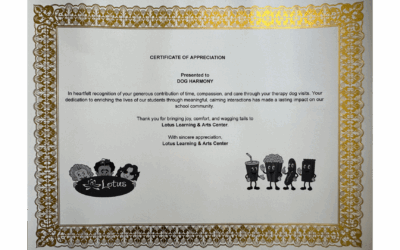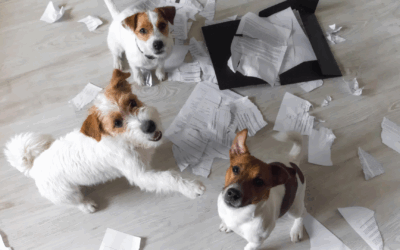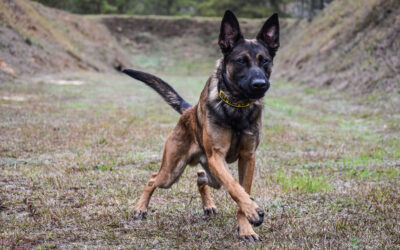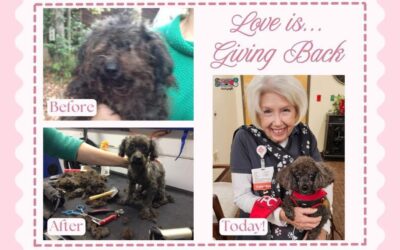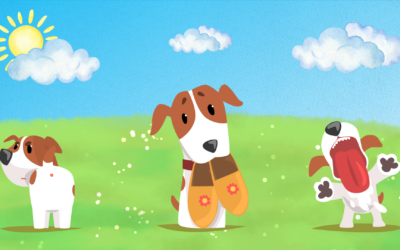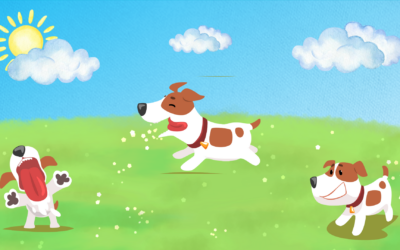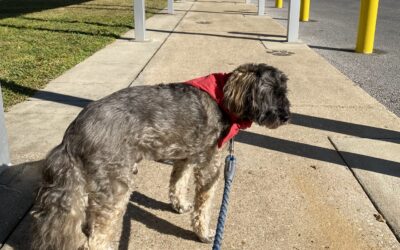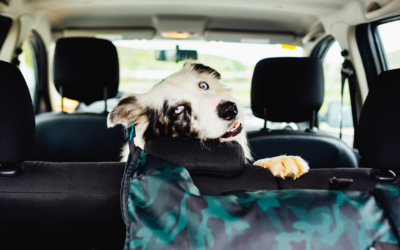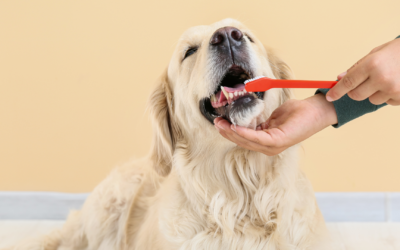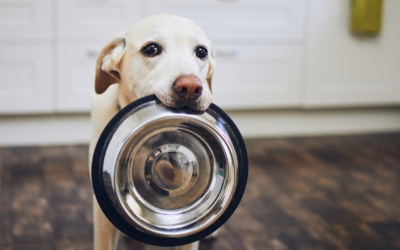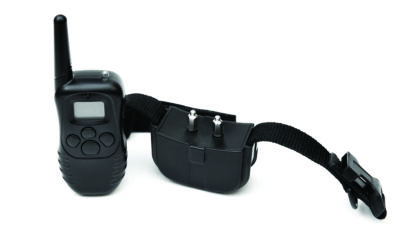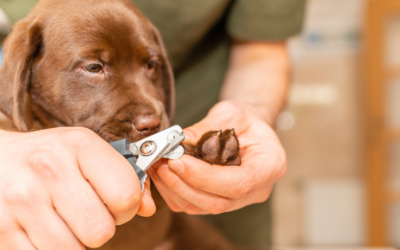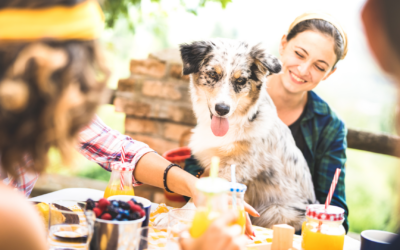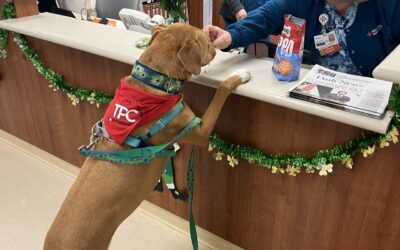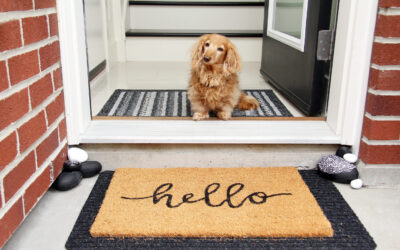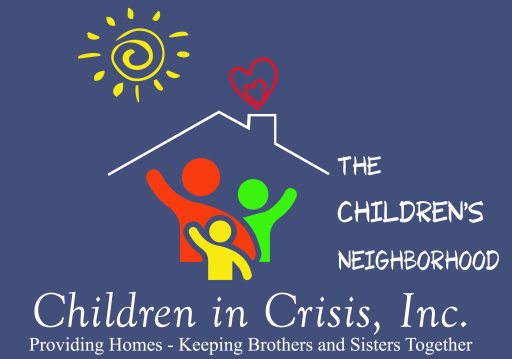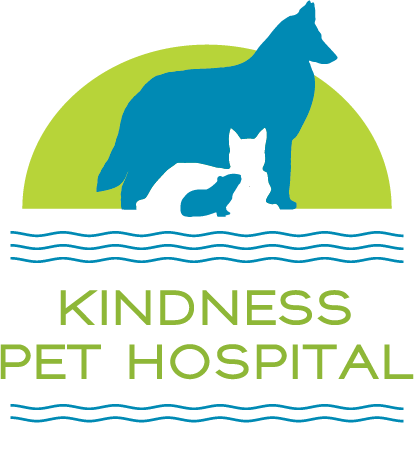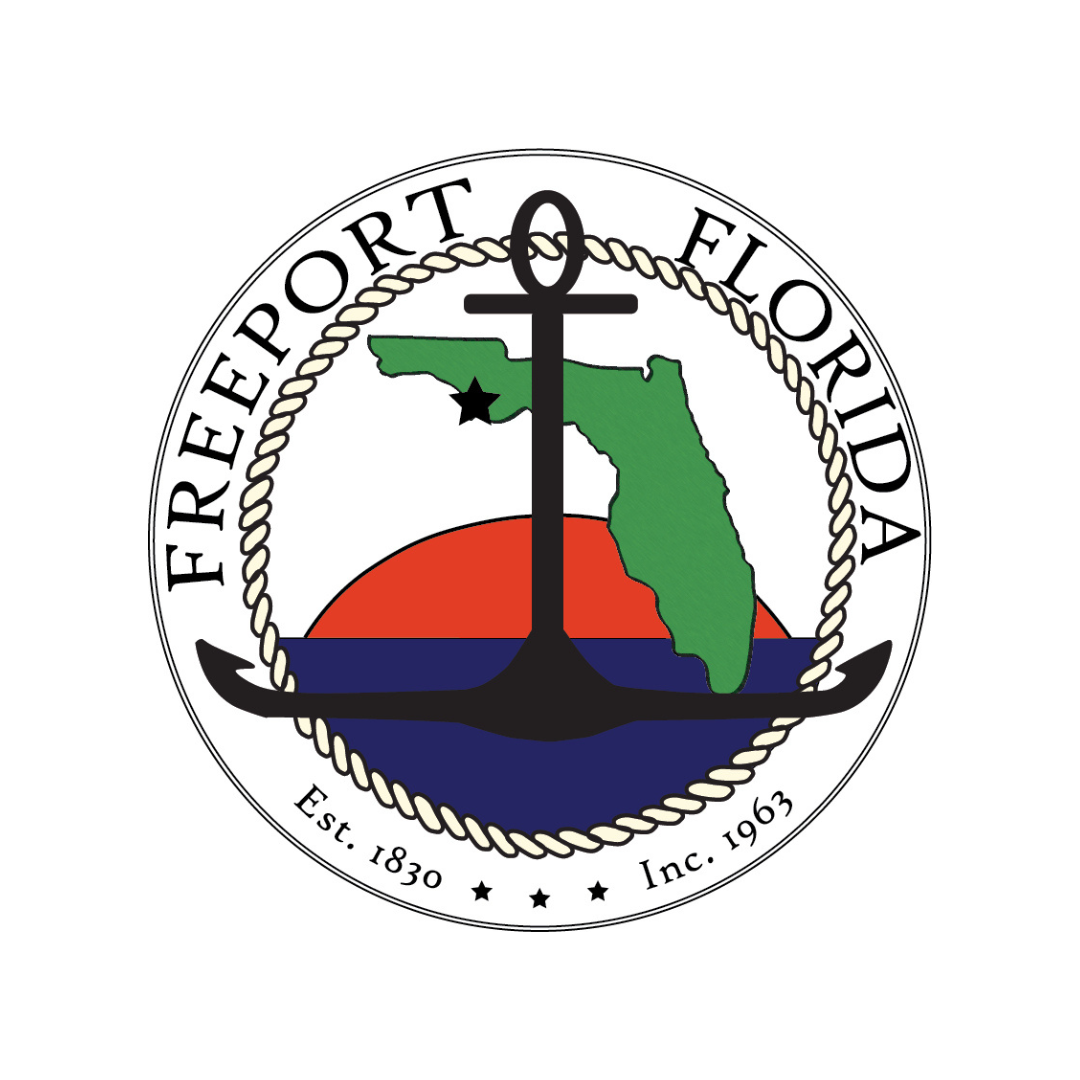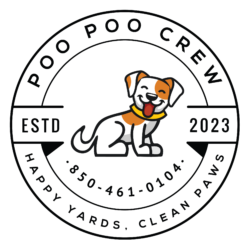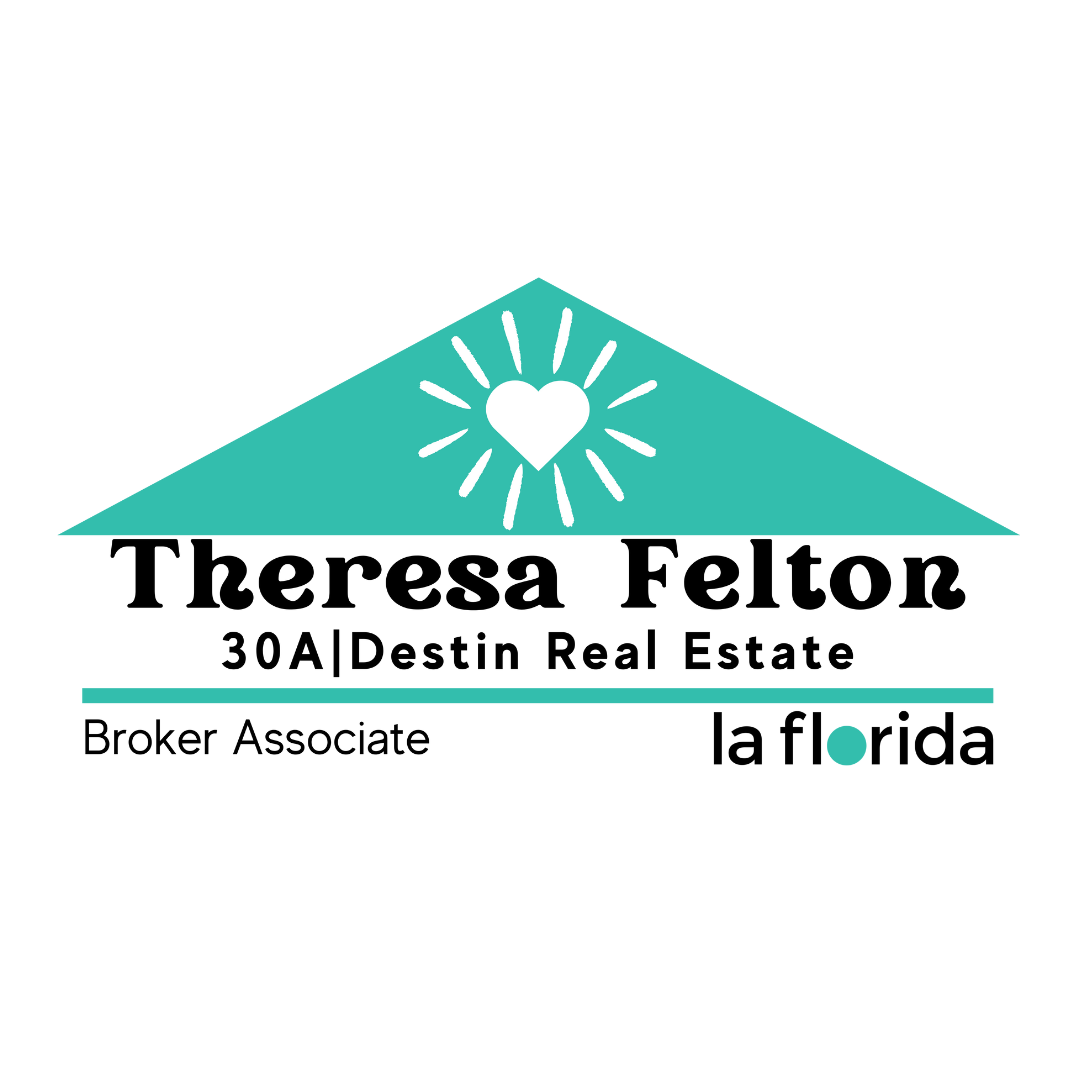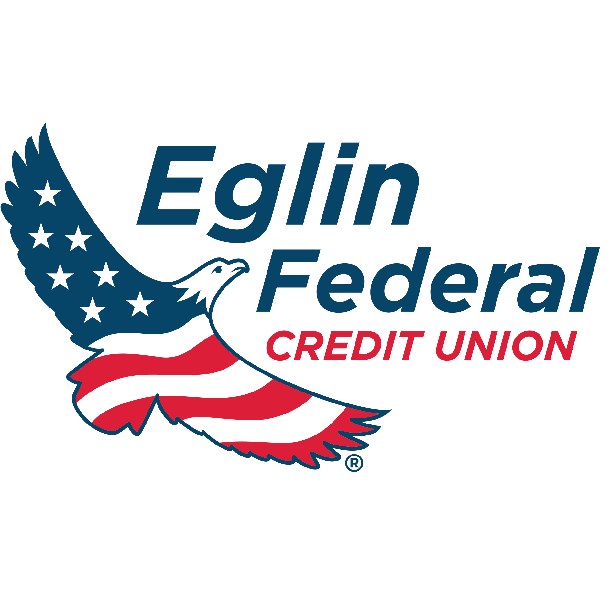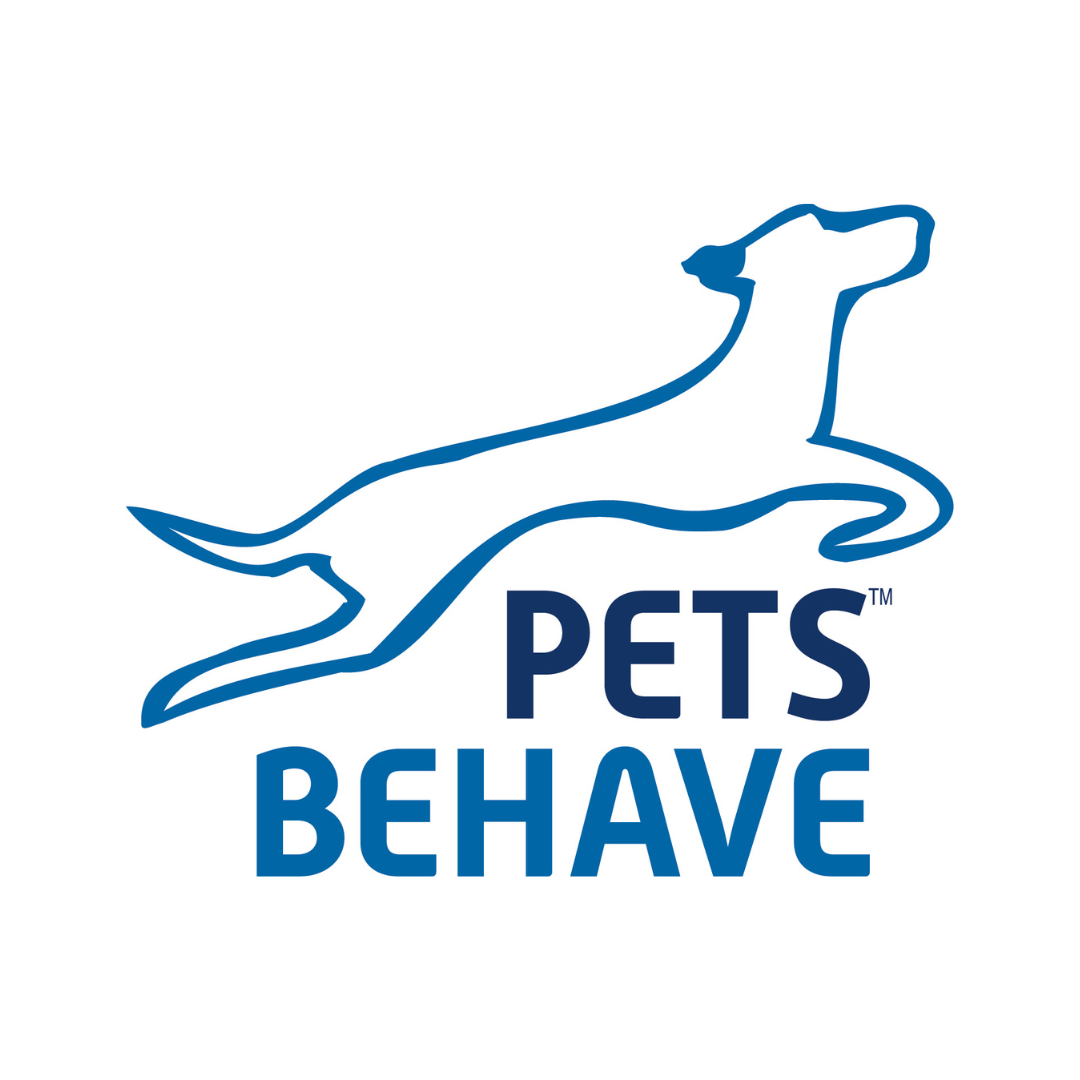Helpful Articles
Here you’ll find articles focused on factual, humane education, and heartwarming stories of how Therapy Dog Teams make people’s lives better. We hope you will be encouraged to live your best WagBreeze Life with your furry companion.
As part of Dog-Harmony’s mission, we provide complimentary access to our curated content.
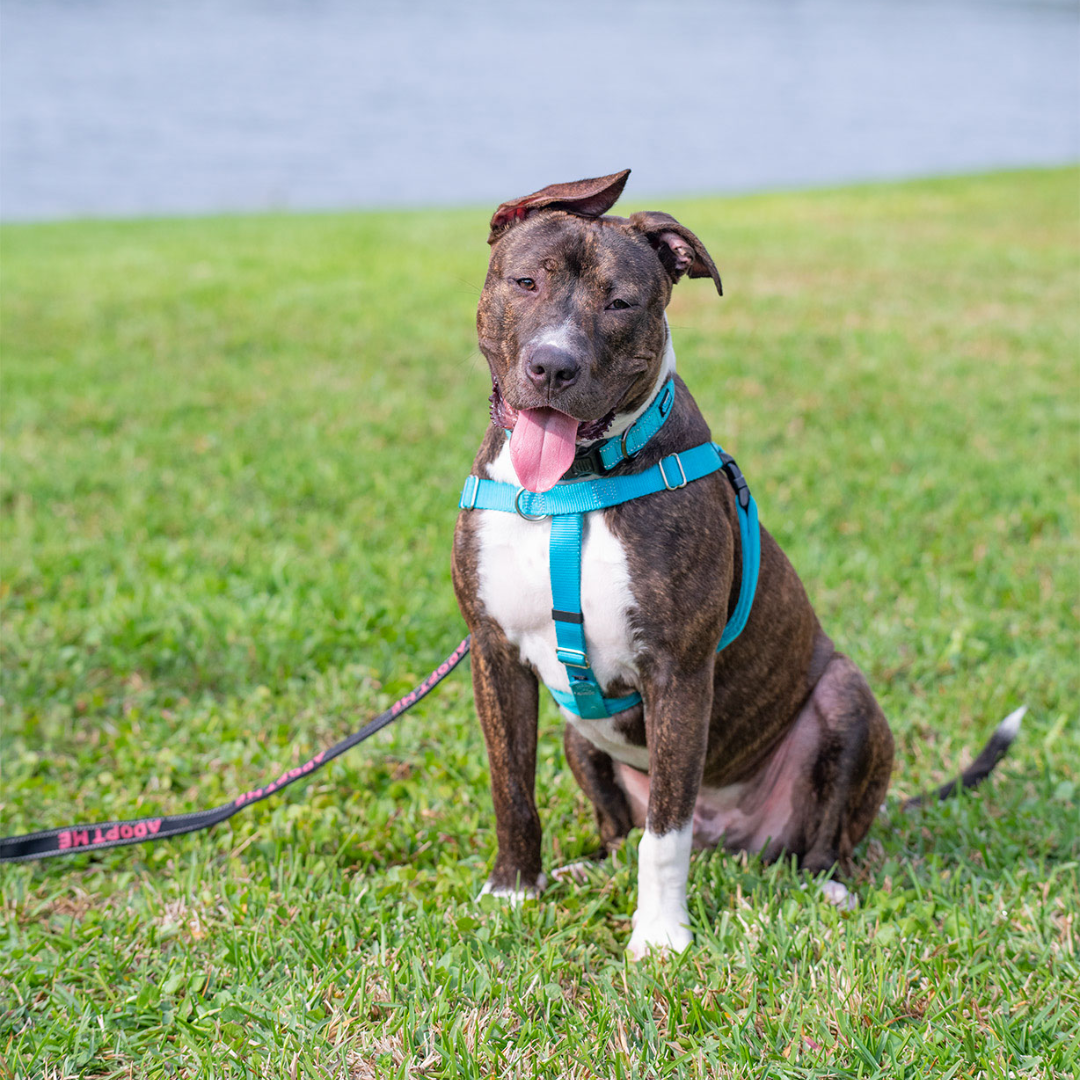
Poem for Dog-Harmony by Lotus Learning & Arts Center
During the school year graduation, Lotus Learning & Arts Center students presented Dog-Harmony’s therapy dog team with a written poem, a Certificate of Appreciation, and a thank-you card. This is what the human-animal bond is all about.
Mayhem in the Morning
It’s mayhem in the morning after a three-dog night with Midge and Tess and Katy asleep, all curled up tight.
Canine Heartworm Disease
Canine heartworm disease is caused by a parasite called Dirofilaria immitis. Dirofilaria immitis has a somewhat complicated lifecycle involving several larval stages and multiple hosts. Immature heartworms, referred to as microfilariae, circulate in the bloodstream of infected dogs. When an infected dog is bitten by a mosquito, the microfilariae enter the mosquito’s salivary glands and mature through several stages.
The Bond at Its Best: Getting to Know Walton County, Florida’s K-9 Teams
We were surrounded by three Sheriff’s Deputies with three highly trained K-9s, a Lieutenant, and a Public Information Officer from Walton County’s Sheriff’s Office. After the fear dissipated, we were able to get a sense of these amazing K-9 teams’ unique personalities and their roles through off-leash demonstrations. We had not expected the depth of the connection and bond between the dog and its handler.
Tiger’s Story
Rescued in 2015, Tiger found his purpose as a therapy dog, bringing joy to HCA Florida hospital staff and patients and children at Lotus Learning & Arts Center. Whether listening to young readers, making music, or offering a friendly paw, Tiger’s journey proves the power of love and patience.
Puppy Survival Guide: Introduction
We’ve compiled some of the best advice from trainers and puppy experts around the country on everything you need to know to be a super puppy parent. From potty training and puppy biting to enrichment and setting expectations, you’ll find the answers to help you survive the amazing and exhausting adventure of raising a canine companion.
Puppy Survival Guide: Staying Out of Trouble
Puppies are bundles of energy, and they can get into all kinds of shenanigans! The best way to keep your pup out of trouble is to give him things to do.
Puppy Survival Guide: Great Expectations
With new puppies come visions of a partner for neighborhood walks, a new playmate for the kids, and a loyal companion to lay at our feet. With time and patience, you can help your puppy understand the rules that come with living in a human world.
Puppy Survival Guide: Puppy Biting Checklist
Most puppies struggle with puppy biting at some point, and while biting is a natural and normal behavior, those little puppy teeth hurt! You can minimize biting overall by meeting their needs, and by using smart management to keep them out of trouble while they mature.
Puppy Survival Guide: Fear Free House Training
When a new puppy joins your family, you have a great opportunity to ensure she’ll grow up to be a confident, healthy dog. Central to that goal is helping her understand where she can and can’t go to the bathroom. Here are our tried-and-true tips for raising a perfectly house-trained dog.
Boomer’s Story
Boomer is now retired, but during his almost two decades of service as a Therapy Dog, he helped many, many children learn to read.
Know Before You Go: What to Do Before Traveling
Planning a road trip with your best friend? A little training goes a long way to make
sure you and your dog have a safe and fun vacation!
Taking Care of Your Pup’s Pearly Whites
Did you know that an estimated 85 percent of dogs and 75 percent of cats over 3 years of age display some form of oral disease? Periodontal disease is considered the most common disease in companion animals. But what is it?
Choosing the Best Dog Food
One of the most important decisions you will make as a dog parent is what type of food you will feed them. Nutrition affects every aspect of your companion’s life— resistance to allergies and disease, energy levels, and neurological activity.
Poisonous Holiday Plants
Many of the plants we associate with the holiday season have a reputation for being poisonous. Deck the halls with boughs of holly — just don’t eat them!
Just Say “No” to the Shock Collar
Dog training has seen an increasing number of pet dogs with problem behaviors due to harsh training methods, especially electronic stimulation devices such as shock collars or e-collars. Unfortunately, well-intentioned dog owners looking for a quick fix are hiring trainers who use shock collars or are buying shock collars and attempting to train dogs themselves.
Fearless Nail Trims
Your dog’s least favorite grooming chore doesn’t have to mean stress and conflict. Learn how to keep your dog’s nails nice and short – the fear-free way!
Can Fearful Fido Be Festive?
While it can be exciting to get together in large groups with our family and friends, this may be scary for our furry four-legged friends. If Fido is nervous about any variation in his environment, adding visitors or other dogs can pose a challenge to future gatherings.
The Perfect Howliday Card
If you’ve ever tried to include your dog in holiday photos, you know it’s not as easy as it sounds! A photoshoot can be a stressful environment for dogs. The good news is a little prior training, and some gradual acclimation can go a long way toward helping your dog be the star of your holiday greeting cards.
Festive Feasts: Holiday Meals for Your Four-Legged Family Members
You can prepare a holiday feast for your dog that is both safe and healthy. The rule of thumb is to keep it simple, use healthy ingredients, and avoid processed foods. We provide you with holiday recipes that are dog and people-friendly for festive feasting.
Avoiding Those Ghoulish Halloween Mishaps
Halloween is a spooktacular time for many. The most social dogs may love children and joyfully engage in goblin gatherings. No matter how social or timid your pet may appear to be, holiday precautions are always the sensible and safe thing to practice. Here are easy ways to keep your tail-waggers safe… and kids, too!
Creative Halloween Costume Ideas for Pet and Parent
Halloween is right around the corner, and one of the most exciting parts of the holiday is deciding on your costume. But, this year, maybe you should also consider: What will your dog dress up as for Halloween?
From Rescue to Rehab: One Dog’s Mission to Bring Harmony to Healthcare
Chloe, a Dog-Harmony therapy dog, brings 65 pounds of love and joy to staff and patients – and the occasional tears to patients who miss their dogs at the HCA Florida Healthcare’s Rehabilitation Institute of Northwest Florida.
Prevent Your Dog From Dashing Out the Door
Doors are one of the most exciting places for a dog and difficult places for an owner. As a Certified Dog Behavior Consultant (CDBC), door greetings is one area that seems to be the most challenging to tackle for both the dog and owner.

